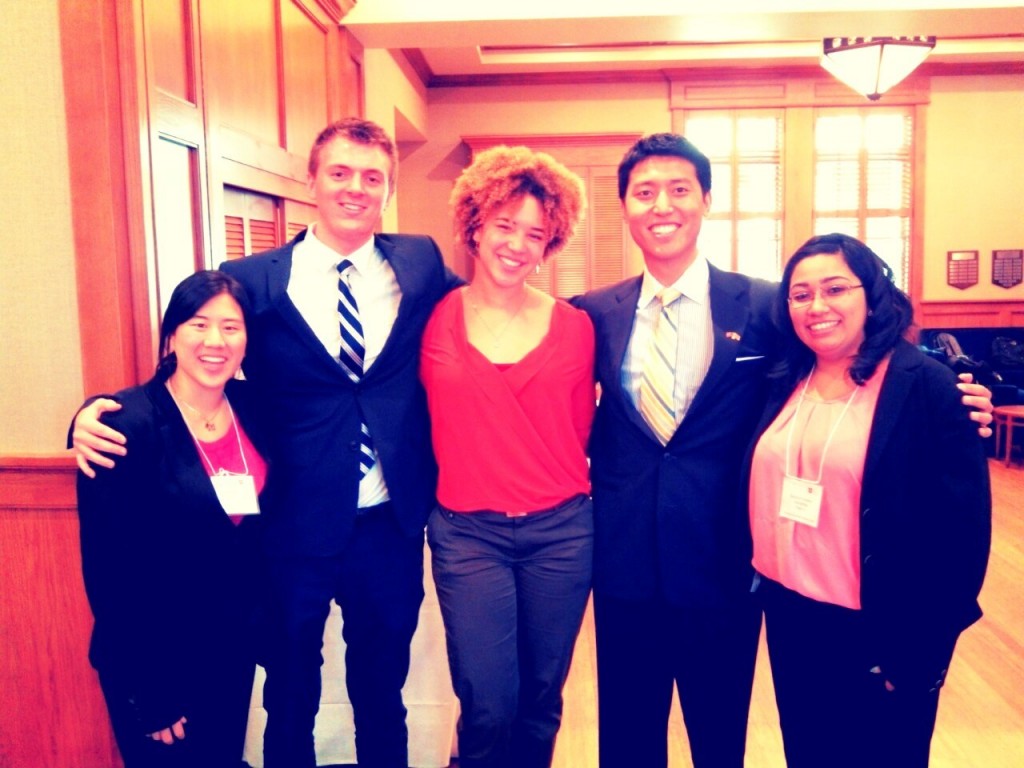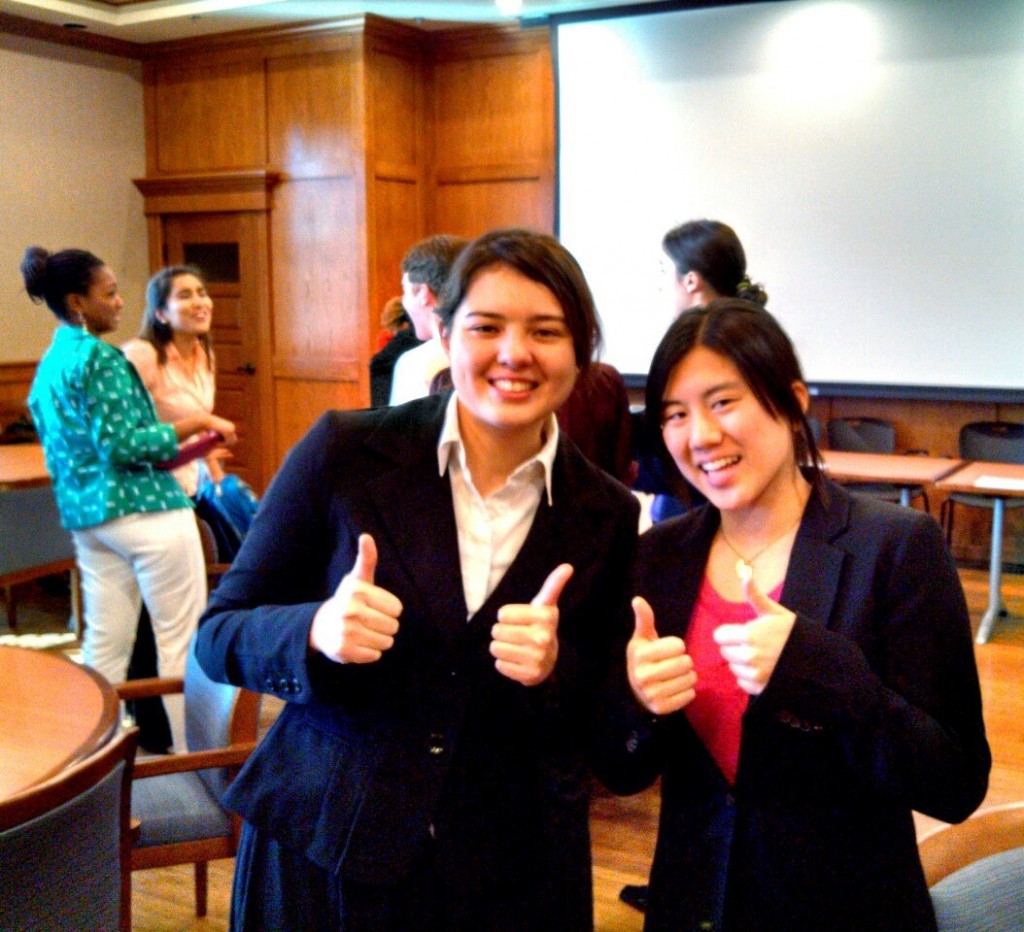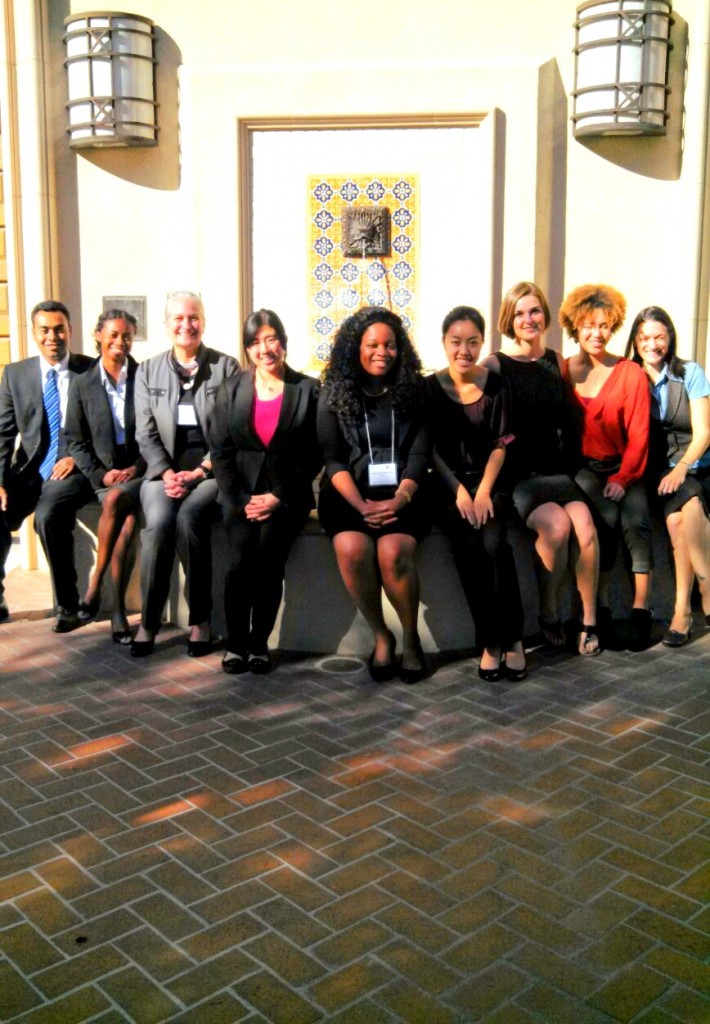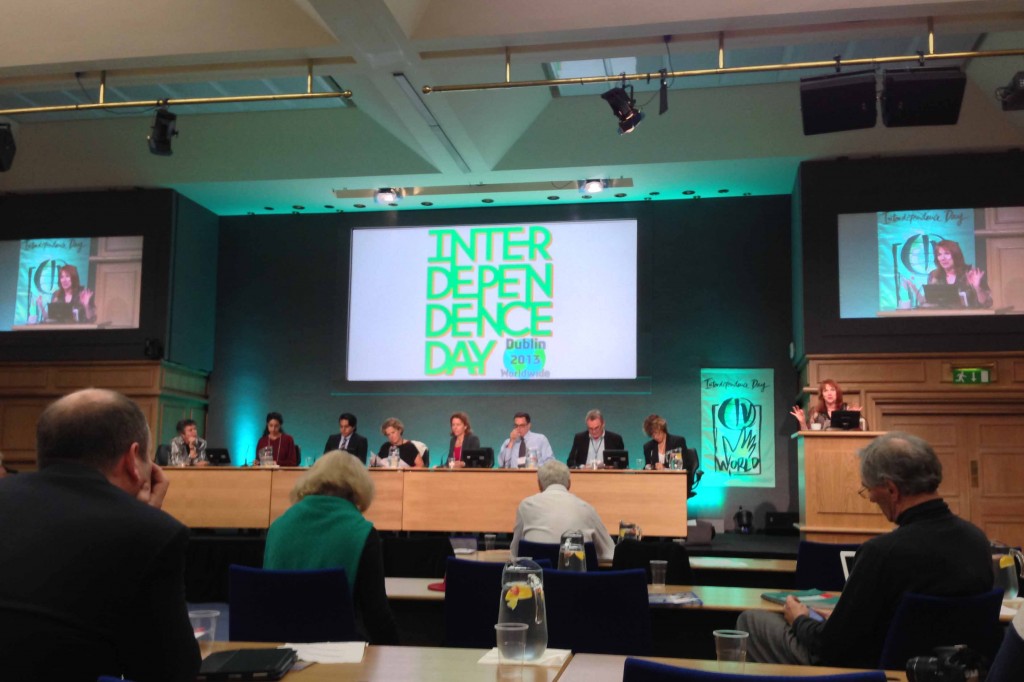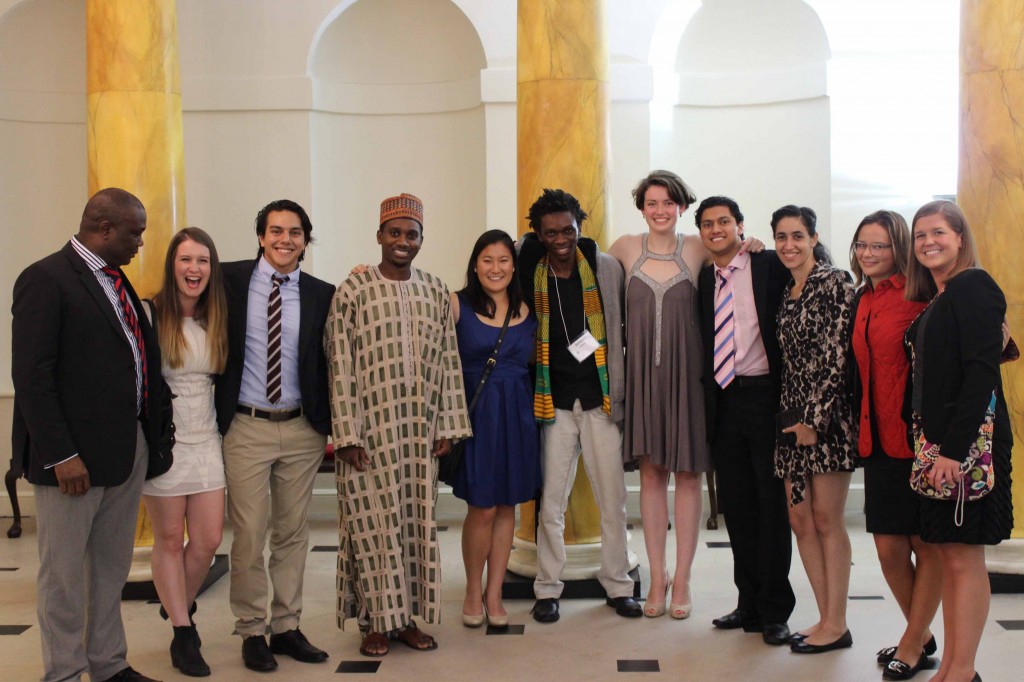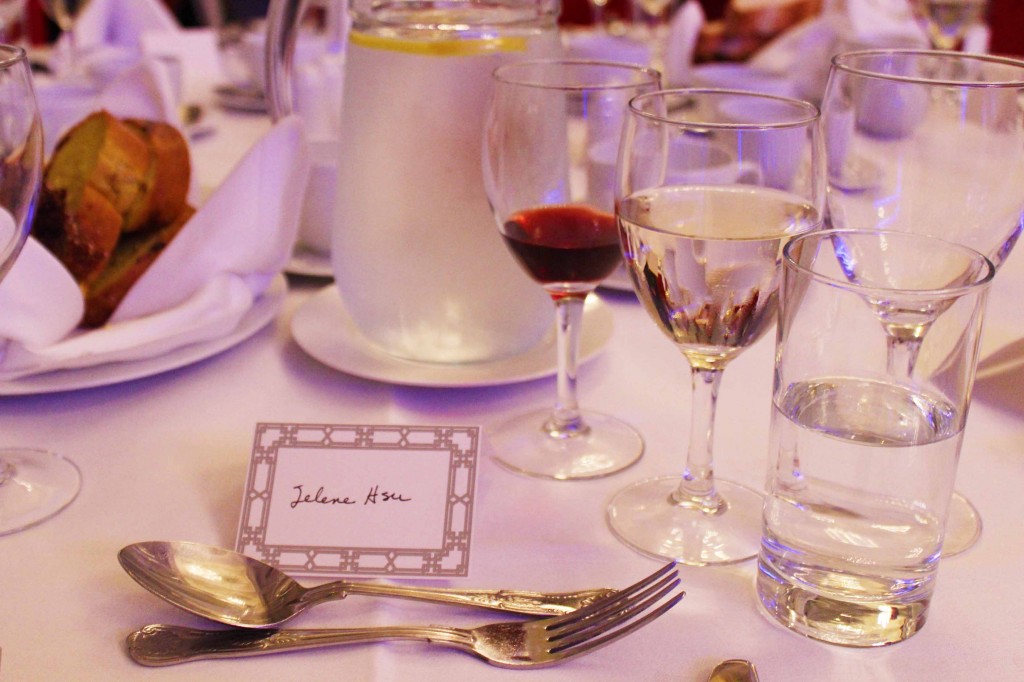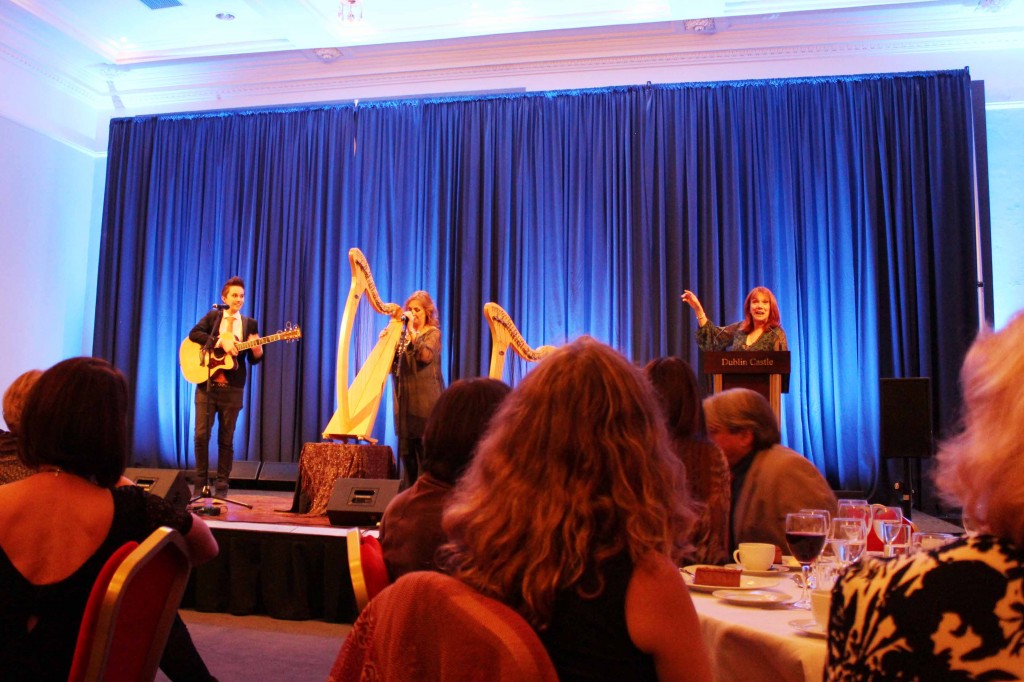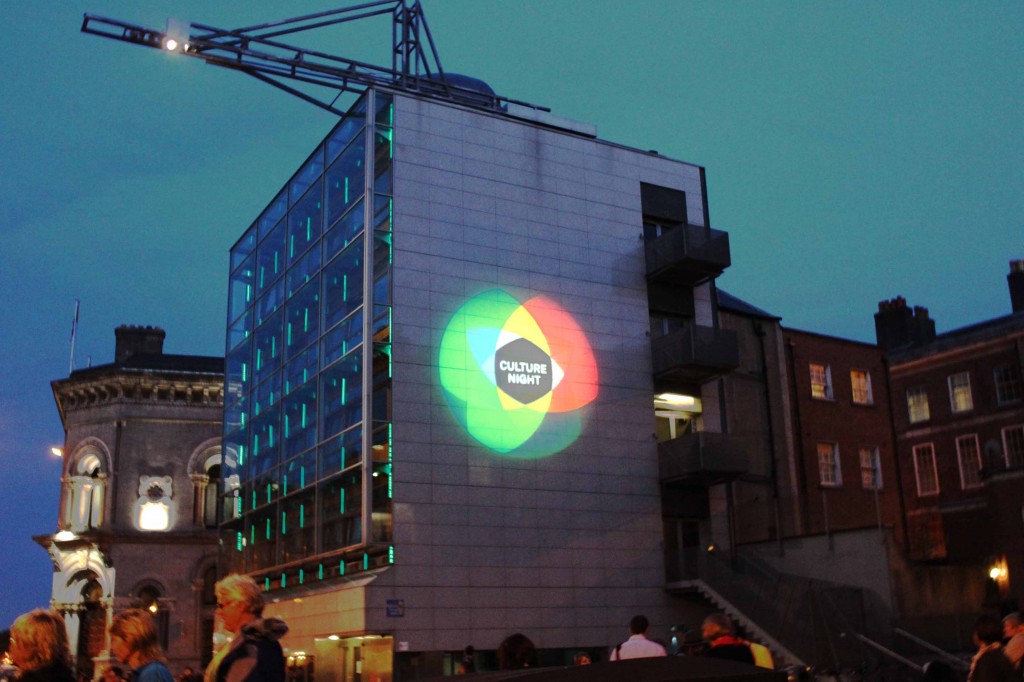
This past Monday, I attended the 253rd American Chemical Society Conference in San Francisco and presented research from this past summer, in addition to work that I have done throughout the past school year. Not only was I able to present my own research and discuss it with professional chemists and graduate and undergraduate students, I also had the chance to hear some interesting talks by big name chemists. This was especially exciting as they were talking about some of the newest techniques used in chemical and biochemical labs and discussing research that has exciting potential for working to fight off diseases such as Huntington’s and Parkinson’s. Although I did not expect to, I had the chance to network with various companies in the field. Because there were so many people who attended the conference, there were many different companies who were selling their products, in addition to the American Chemical Society and the Royal Society of Chemistry. They had people giving away free products, trying to help people learn more about how they communicate to the scientific community, and also to network with students who could potentially become their employees. I am particularly interested in working to communicate science to the general public. Currently, there are very few resources that make it easy for the general public to learn about the newest scientific advancements, as most are published in academic journals and magazines. The Royal Society of Chemistry has journals for nearly every sector of chemistry, for example, environmental and biochemical, but they are all written for an academic audience in mind. When I was visiting their booth at the conference, I was interested in learning if they had any resources for the general public and was told that they publish a magazine entitled Chemistry World. The woman I was speaking with told me that they are often looking for freelance writers and that she could take my contact information and would have someone get in touch with me when they returned to the UK. I was very excited about the prospect of getting in contact with someone who works at the magazine and hope there is a chance that I could do an internship of some kind with them. 
What I took away from my time at the conference was that putting yourself out there, at a place where people are looking to talk with individuals who are interested in the work they do, will often pay off. I don’t know what kind of opportunities they might have for undergraduate students, but the fact that I will be in contact with them is exciting and means that there is a potential for me to work with them and learn more about what I might want to do for a career in the future. I was also reminded of one of my favorite things about science, which is that it sparks conversation, debate, and curiosity. There were people who were genuinely interested in learning about the research I had done, and I was excited to share my findings with them. I found myself being sucked into lectures that were discussing entirely new topics to me.

I am so grateful for the experience of spending time with people who are just as curious about science as I am, in addition to being able to network with the Royal Society of Chemistry.
Have any experiences at conferences or networking with future employers? Comment below!

